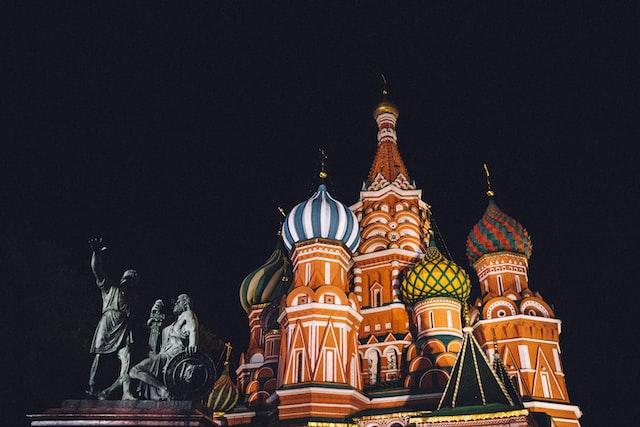Less than a month after meeting briefly with Pope Francis in Kazakhstan, one of the Russian Orthodox Church’s most senior prelates has said that relations between the two churches are more or less at a standstill.
Newsroom (4/10/2022 10:55 AM Gaudium Press) — In an interview with the “Church and Peace” program on Russian television station Russia 24, Metropolitan Anthony Sevryuk of Volokolamsk, the Russian Orthodox Church’s “foreign minister,” said that “currently relations between the Russian Orthodox Church and the Roman Catholic one, are practically frozen.”
“At this stage I must say that some comments we read and hear not only from the lips of the pope, but also the great part of his aides, absolutely do not contribute to the preparation of a new meeting and our further cooperation,” he said, referring to efforts being made to organize a second meeting between Pope Francis and Russian Orthodox Patriarch Kirill.
The two met for the first time in Havana, Cuba, in 2016, and a second encounter was prepared in June in Jerusalem. However, the Vatican pulled the plug over the diplomatic fallout the meeting would generate following Russia’s Feb. 24 invasion of Ukraine and Kirill’s staunch support for the war.
Pope Francis and Sevryuk met for a brief 15-minute conversation while the two were in Kazakhstan last month for a congress on world religions, which gathered top-level civil and interfaith leaders from around the world.
Kirill was scheduled to attend the event but announced he would not go at the last minute and sent Sevryuk in his place.
In remarks to journalists after his conversation with the pope, Sevryuk said the possibility of a second meeting was discussed but that it “must be well prepared,” and potentially accompanied by a joint statement or declaration.
Sevryuk also criticized previous remarks from the pope warning Kirill not to become Russian President Vladimir Putin’s “altar boy,” saying the statement, which was made during a videocall between the two leaders and later revealed by the pope in an interview, was “not useful” for Christian unity.
Pope Francis has repeatedly condemned the violence as “madness” and called both sides to demonstrate a willingness to negotiate a ceasefire.
While in the past, the pope has at times been critical about arming nations, on his return flight from Kazakhstan, he said sending weapons to Ukraine can be “morally acceptable” under certain circumstances.
Francis has also long voiced his desire to visit both Russia and Ukraine in a bid to promote peace efforts; however, in a conversation with members of the Jesuit order in Kazakhstan that was published in the Italian Jesuit-run newspaper La Civilta Cattolica last week, he said a visit to the Ukrainian capital of Kyiv would likely not happen anytime soon.
In a direct appeal to Putin on Sunday, Pope Francis asked the Russian president to stop “this spiral of violence and death,” which he said “increases the risk of a nuclear escalation, to the point of fearing uncontrollable and catastrophic consequences on the world level.”
He also directly appealed to Ukrainian President Volodymyr Zelenskyy, asking that he “be open to serious proposals of peace.”
In his comments to Russia 24, Sevryuk also denied the impression that the faithful are leaving the Russian Orthodox Church in droves, despite the decision of some Russian Orthodox parishes, such as the one in Amsterdam, to make a formal request switch to the Orthodox Patriarchate of Constantinople, long seen by Kirill as too indulgent of the West.
He also denied rumours that the Russian Orthodox Church is being suppressed in some countries, saying, “I do not rule out that some unfriendly countries may take some actions to restrict our activities abroad. But, of course, there is no need to talk about any isolation.”
Isolation, he said, means “empty churches, the outflow of believers, the decline of church life.”
He also said that the Russian church has not yet encountered examples of forcible restriction of ministry abroad, “except, perhaps, Latvia,” where the Russian Orthodox community recently seceded from the Moscow Patriarchate’s authority.
– Raju Hasmukh with files from Crux Now
































